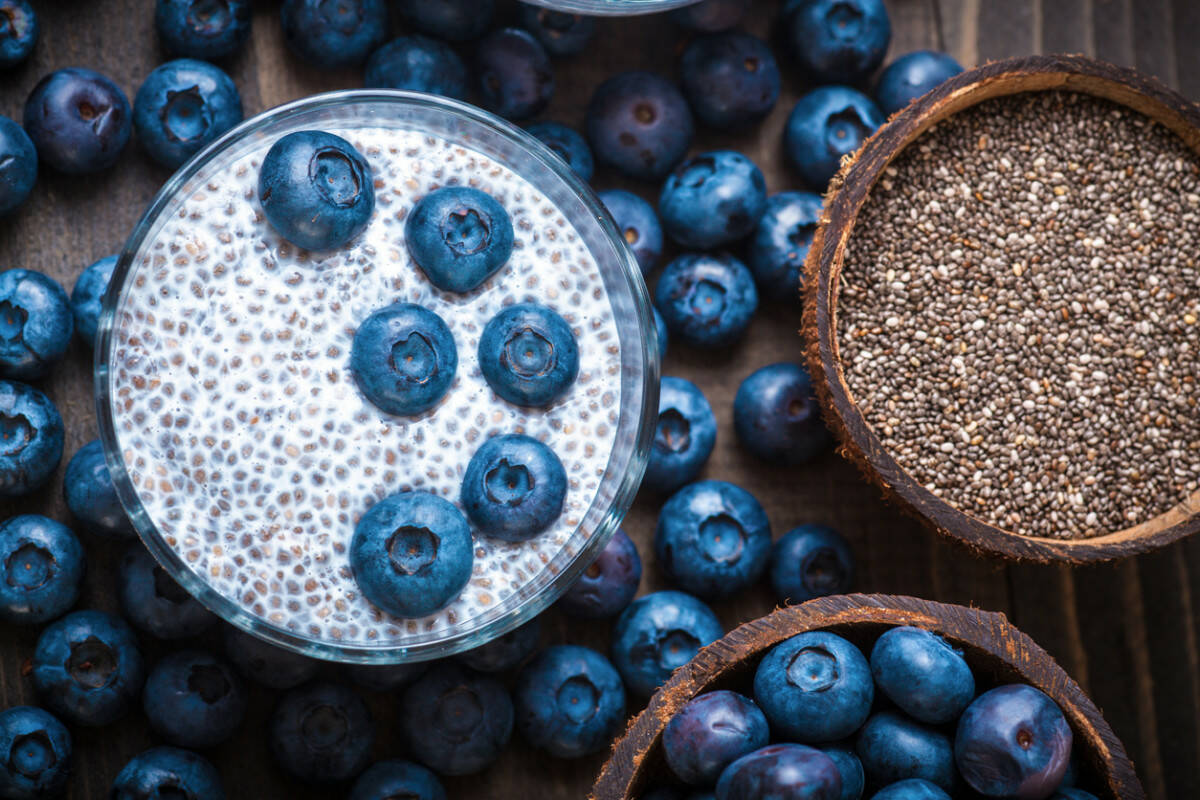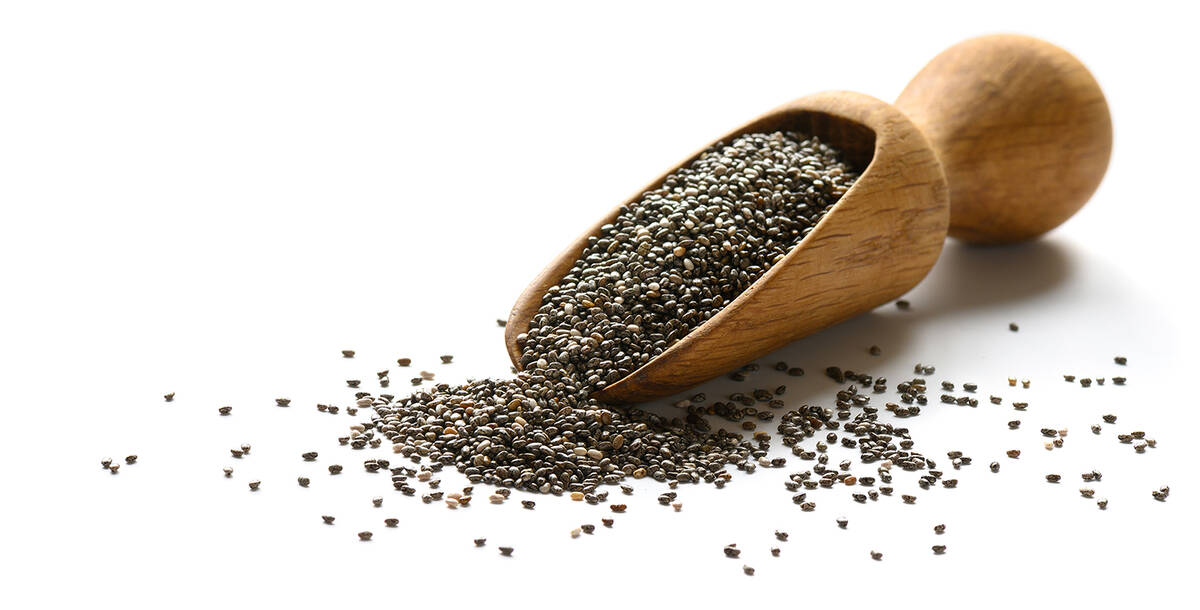Can chia seeds really aid weight loss? Here’s what dietitians say
Chia seeds are everywhere on social media — smoothies, salads, puddings, the list goes on. And it’s no secret why they’re so popular: These seeds are packed with nutritious benefits and are scientifically proven to improve your health in a variety of ways.
One of their biggest claims to fame is weight loss. And that’s why many people are wondering if these little black seeds live up to the hype. So, do chia seeds really help you lose weight? And should you be adding them to your yogurt or smoothie? Here’s the truth, according to dietitians.
An aid to weight loss?
Chia seeds contain fiber and protein, and both keep you feeling satiated and full. While fiber and protein can both support your weight-loss efforts, they aren’t a cure-all.
“The insoluble fiber in chia helps to bulk up stool, while the soluble fiber forms a viscous gel that absorbs and retains water while slowing gut transit time,” says Christine Randazzo Kirschner, registered dietitian and co-founder of Amenta Nutrition. “Protein is digested more slowly, and studies have shown that meals high in protein are associated with less intake afterward. This slower movement means that you’ll feel satisfied and fuller for a longer amount of time, which may allow you to reduce your overall caloric intake leading to weight loss.”
However, just adding chia seeds to the diet won’t directly lead to weight loss if the rest of the diet is unbalanced or is highly caloric from foods high in saturated fat, added sugars and refined grains, Kirschner says.
Developing healthy eating and lifestyle habits is the only true weight-loss solution.
“It’s a common misconception that a single food can result in weight loss or gain,” registered dietitian Brenna O’Malley says. “I work with many clients who have spent a lot of time hyperfocused on single specific foods they ‘should’ or ‘shouldn’t’ eat to lose weight, and this pattern of thinking often leaves them feeling fixated on single foods instead of their overall eating patterns, foods they like and enjoy as well as foods that offer a variety of nutrients, and health.”
Chia seeds are a great source of many nutritional components we want in our diet, but eating chia seeds — or any single food — will not result in weight change, O’Malley says. Overall, chia seeds can be a great addition to your diet, offering fiber, protein, fat and texture to a meal or snack but, like any food, should not be seen as a “magic bullet” to weight change or health.
Noteworthy health benefits
No, chia seeds alone won’t help you drop unwanted pounds overnight — but they can help with your weight loss efforts, and they have additional health benefits:
■ Packed with minerals: Chia seeds have calcium, iron, magnesium, phosphorous, potassium, zinc, manganese, selenium and copper.
“These minerals are vital for almost every body function, including bone and blood health, nerve transmission, muscle contraction, wound healing, immune function, cell division, DNA synthesis, and blood pressure and blood sugar regulation,” Kirschner says.
■ High in omega-3 fatty acids: Omega-3 fatty acids can support weight loss by reducing symptoms of metabolic syndrome — a contributing factor to belly fat.
“The omega-3s found in chia is a-linolenic acid (ALA), which is an essential component of cell membranes,” Kirschner says.
Chia seeds are rich in antioxidants: Chia also contains several antioxidants such as vitamin E, quercetin, kaempferol, caffeic and chlorogenic acids.
“These antioxidants scavenge and neutralize free radicals that can damage cell membranes, cause cell apoptosis (death), and alter DNA, which can lead to cardiovascular disease and cancer,” Kirschner says.
■ Supporting gut health: The soluble fiber found in chia seeds is a prebiotic that feeds the healthy bacteria in the gut. These bacteria produce short-chain fatty acids that help nourish the gut’s cells and fight off harmful bacteria, Kirschner says.
Best uses of chia seeds
Chia seeds are extremely versatile and can be incorporated into a variety of recipes.
“Chia seeds have a mild flavor and can be added to many foods or eaten as a breakfast pudding or dessert,” Kirschner says. “I like to add a few teaspoons to smoothies, soups, yogurt, oatmeal and even muffin batter to pump up the nutritional value. Chia is also delicious sprinkled on salads or on toast with hummus or avocado.”














